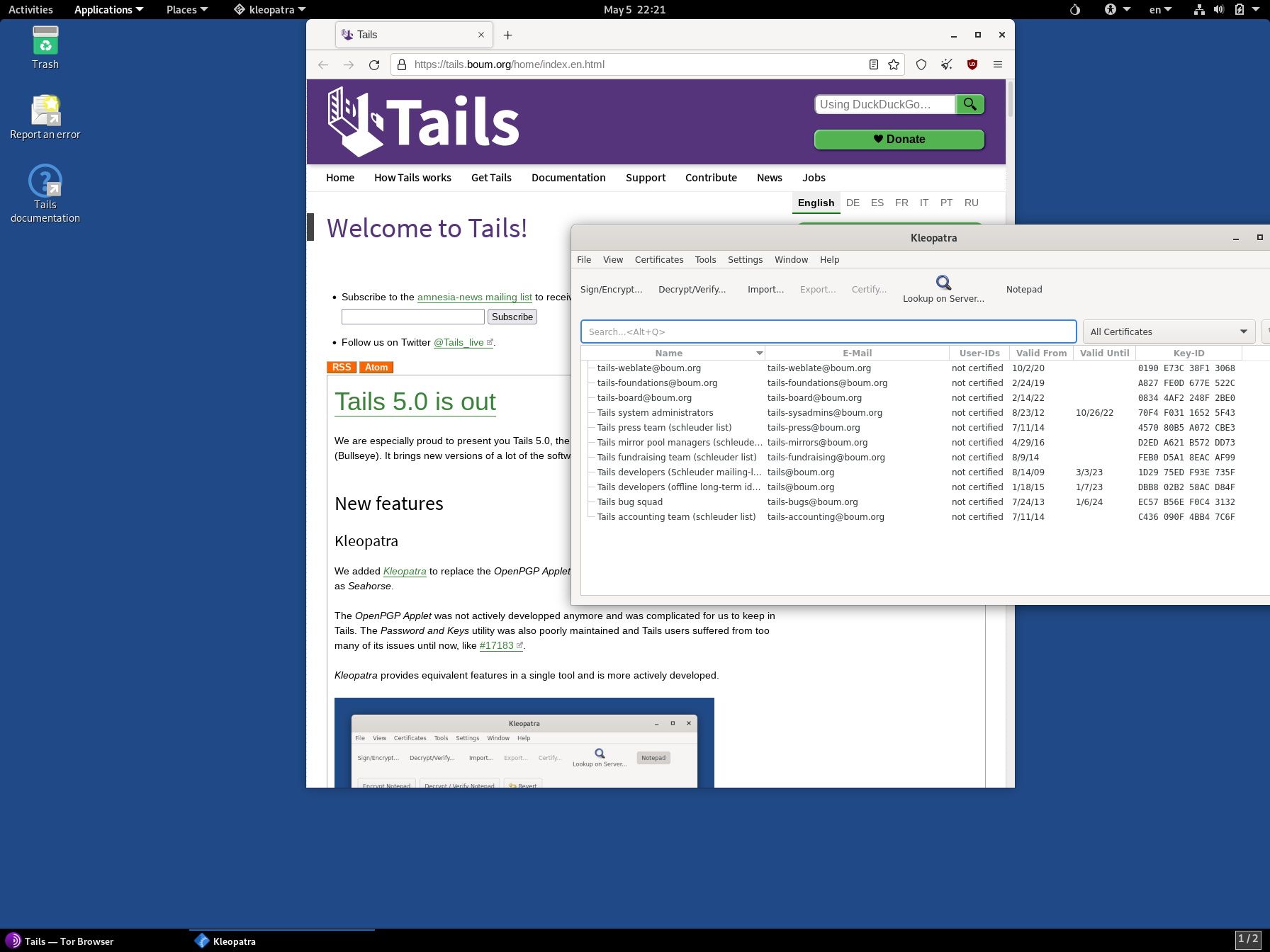The security-focused Tails live Linux distribution has announced the availability of version 5.0 of the system. It brings with it some major changes to apps, including a new PGP app, Kleopatra.
New Security App Debuts in Tails 5.0
The developers announced the new version on Twitter:
Tails 5.0, which aims to make users anonymous, is the first to be based on Debian 11, also known as "Bullseye," the current stable version of the popular Linux variant.
The biggest user-facing change in Tails 5.0 is a new app, Kleopatra, that allows users to encrypt messages and files. According to the Tails blog post announcing the new version, the developers said they swapped the older OpenPGP Applet for Kleopatra because the former was no longer updated regularly.
Other improvements include updates to the Tor Browser, the GNOME desktop environment, LibreOffice, GIMP, and Inkscape. There are also changes to make setting up persistent storage easier.
Tails 5.0 Continues Focus on Privacy, But Users Beware
The new version of Tails continues the distro's focus on security and privacy. Tails is intended to boot from a USB stick and allow users to surf and communicate anonymously. It can also be cloned from another trusted user's existing installation.
After the system shuts down, Tails should in theory leave no trace. It also blocks applications by default if they try to connect to the internet without Tor.
Since Linux users seem to be vocal about privacy, at least in online forums, this latest release should appeal to those most concerned about governments and other malicious users snooping on their messages.
Despite Tails' focus on security, the developers remind prospective users that Tails isn't perfect and that they have to be smart about how they handle themselves. The Tails installation page warns that metadata in documents may identify them, as well as using Tails for more than one purpose.
Tails 5.0 and Tor Are Only as Secure as Users Make It
The Tails project stresses that users are only safe as they are willing to take precautions with using the Tor browser. Tor users on any platform can accidentally de-anonymize themselves if they make careless errors. If they're careful about where they go on the web, they can keep their communications private when they need to.


